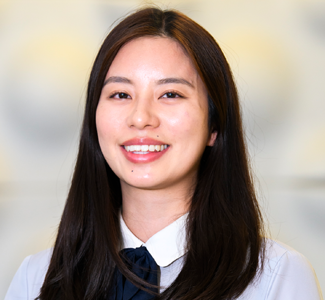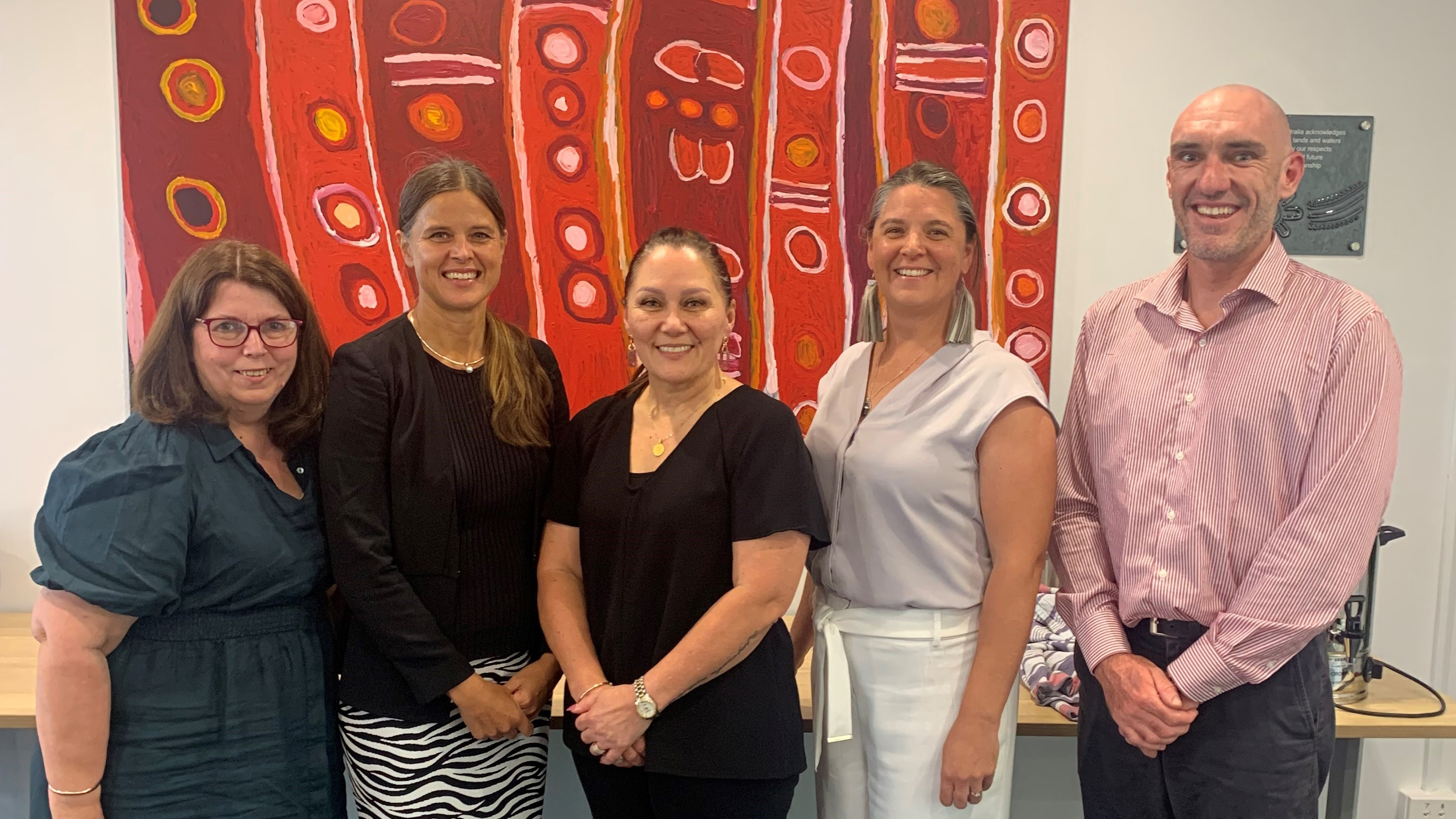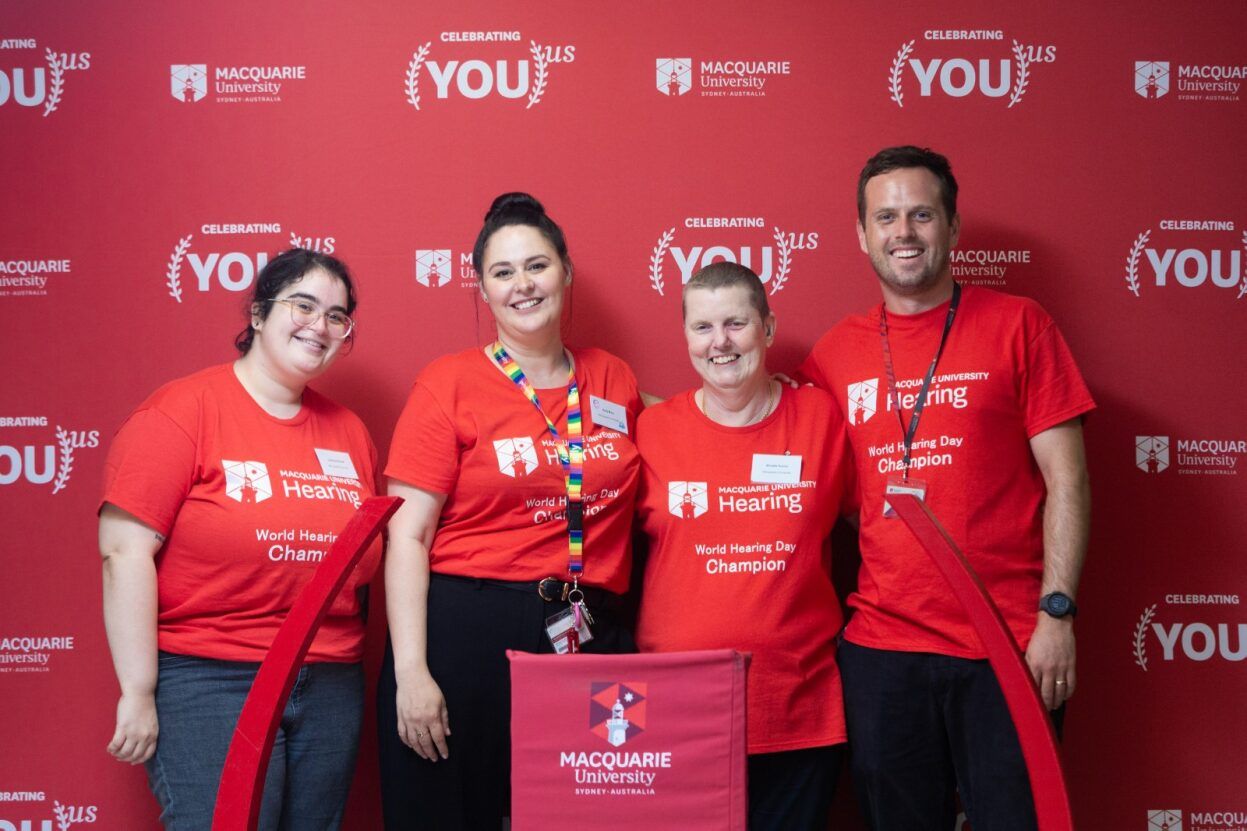Tell us a bit about your research and the team you work with. 
I’m part of the Public Health and Policy Pillar within Macquarie University Hearing. Our goal as a team is to bring a public health lens to hearing research in order to better understand how hearing problems affect health and social outcomes, and identify and implement viable, evidence-based solutions that will address the impacts of adult-onset hearing loss and the low uptake of hearing services and interventions.
As a dietitian and nutritional epidemiologist, most of my work focuses on understanding the lifestyle risk factors associated with adult-onset hearing loss and tinnitus and reducing the impacts of these conditions on a person’s wellbeing. Currently, I’m leading a couple of pilot studies that both aim to develop, implement and evaluate an online intervention for older adults to reduce feelings of loneliness. One study focuses on hearing loss and the other on vision loss. I’m hoping to use this opportunity to explore dual sensory loss in the future.
What do you love most about your work?
I love that my work has the potential to make a meaningful difference in people’s lives. It’s exciting and motivating, especially when I also get to meet and collaborate with equally passionate academics, consumers, healthcare professionals and so on, not only within Australia but internationally as well.
Why did you choose hearing as your research specialty?
I’ve always enjoyed working with older adults. My PhD focused on older adults with vision loss, and my earlier jobs included working at a nursing home and as a dietitian to mostly older adult clients. The move to hearing research was driven by a couple of things – the 2020 Lancet report that identified hearing loss in midlife as the biggest modifiable risk factor for a future dementia diagnosis and therefore a need for me to identify and reduce the impacts of modifiable lifestyle risk factors linked to adult-onset hearing loss, and the opportunity to continue my research in vision loss and extend this to dual sensory loss (vision and hearing) in older adults.
If you had $1m in research funding, what would you do with it?
With $1m in research funding, I would conduct a larger scale randomised controlled trial to follow on from my two pilot studies. This would allow me to thoroughly investigate the impacts of my intervention for older adults with hearing loss, vision loss, and dual sensory loss, and explore opportunities to embed the program within communities.
What’s something you’re proud of?
I’m really proud of the team that I work with at Macquarie University Hearing. It’s been just over a year since we’ve come together but we’ve all shown our dedication towards achieving our aims and making a difference in hearing research through our collaborations, grants and publications.
What makes a perfect weekend for you?
My perfect weekend would involve some combination of going to a live event (sports or otherwise) or to the beach on a 30-degree day, playing pool with my friends for hours, trying new foods, and sleeping in.
What’s your favourite travel destination and why?
At this moment, Vietnam would be my favourite travel destination. Not only because I’m half Vietnamese and have a lot of family over there but during the last lockdown, I discovered the Best Ever Food Review YouTube channel. I binged all of their last 20+ videos that happened to be featured in Vietnam and realised that I’ve only seen a tiny part of the country and tried a fraction of the food.
Tell us something most people wouldn’t know about you.
I’m 93% introverted according to the Myer-Briggs personality quiz.
When you were five, what did you want to be when you grew up?
I can’t actually remember what I wanted to be at that age, but my earliest memory of really enjoying something and genuinely considering it as a career happened when I was in Year 9 (13 years old?). Food science and technology was my favourite subject, and the theory classes on nutrition made me want to be a dietitian. Unfortunately, there wasn’t enough interest in the subject for it to be offered in Year 11 and 12 (despite me rallying all my friends to sign their name on a piece of paper to give to the vice principle as proof there was an interest). Despite that disappointment, I picked it up again at uni and became a dietitian in the end.








